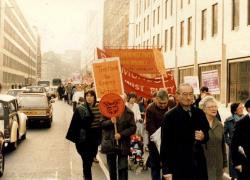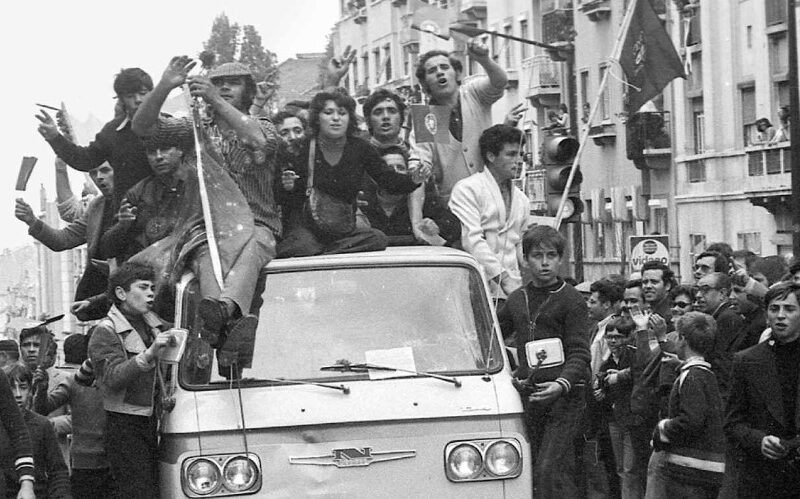By Lynne Faulkes
[As the first of a series of articles to celebrate International Women’s Day, we reproduce here an article that was first published in Militant in March 1985]
All over the world women have been involved in the struggle to defend and improve their own and their families’ lives. From nearly every continent there are reports of strikes marches and demonstrations.
In Britain the crucial role of women in the miners strike has been acknowledged everywhere.
This is not been just supportive in defence of men’s jobs, as some cynics have claimed; the miners wives have proved that far from their place being in the home, they have been a central part of the strike itself. As well as being in the forefront of picketing, speaking and meetings and raising finance, we have also kept the strike going through kitchens and welfare centres. In many cases their determination alone has kept the miners out.
For the first time, many wives have seen beyond their own four walls and have proved the necessity of involving women as an integral part of the labour movement. This must be kept up when the strikes are over, to help them cope with the adjustments needed in getting back to “normal” life, and also to use the energies and tenacity shown during the strike, to help revitalise the unions and the Labour Party.
This is even more so when unemployment is high and services have been cut; pressure to stay at home, becoming totally involved in caring for the family, (the sick, handicapped and elderly, as well as children) with no apparent time or energy for activities in the labour movement.
But at the same time, the impossibility of coping with all the problems – at home, jobs, housing, education, health, transport, leisure facilities and places for under-fives, low pay, and so on – mean that many women and men forced to take action to defend and improve living conditions. This in spite of the backward restraining influence of the family played on by the Tories and the media.
Not always restricted to the home
But women in particular have not always been restricted to the home. In wartime, women were positively encouraged to work and crèches and nurseries were set up to help them.
Today’s key institutions: the family, private property and the state, were once non-existent. They developed at a certain period of history as a result of specific social and economic conditions, and will survive only so long as those conditions continue to exist.
In an economy based on satisfying need not profit, the family would not be a burden to the working class and relations with children and each other would be a pleasure. There is nothing more guaranteed to breed frustration and isolation, lack of confidence and apathy today, than if men and women are allowed to retreat into the home, with its never-ending problems and endless housework.
For most people the main problem in getting active in the labour movement is the responsibility of the family. Demands for equal opportunities are meaningless without the parallel provision of good childcare and adequate maternity and paternity rights. To ease the problems of illness, we need to guarantee good social healthcare and help for the disabled and elderly.
We also need first-class community restaurants and laundries. We have seen excellent examples of this during the miners strike, with the soup kitchens – just imagine what would be possible with first-class facilities and food! So we can concentrate on the development son of ourselves and society.
Instead of being diverted by pressing social problems, we also need decent housing education support these demands are realisable in a socialist society when the resources talents and abilities of men and women can be used to benefit all with tremendous advancement of productive forces, with all the advantages of technology and industry, men and women would be able to fully develop personally, free from economic burdens.
The labour and trade union movement is the only force in society capable of radically improving the position of women working class men and women. It is crucial that the labour movement response to these needs. Taking up the struggle for economic and social emancipation is a vital aspect of transforming the Labour Party and the trade unions into fighting organisations capable of carrying through the socialist change of society, both here and throughout the world.
March 7, 2019



